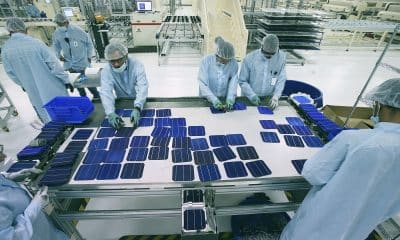Manufacturing
India aims $300 bn output in electronics manufacturing by FY26
India plans to tackle its rivals China and Vietnam with $300 billion in electronics manufacturing over the next four years. This includes $120 billion reserved for exports, broadening of product-basket for incentives, specially crafted large industrial zones with modern facilities, and permissions for factories that can accommodate up to one lakh workers.
The government intends to give scale to domestic electronics manufacturing set up, which would eventually lead to the creation of strong supplier ecosystem and generate great employment opportunities and global servicing.
Ashwini Vaishnaw, IT and Electronics Minister, says the government has already committed nearly $17 billion over the next six years across four production-linked incentive (PLI) schemes for semiconductor and design, smartphones, IT hardware and components. These will emerge with more categories where benefits would be extended to strengthen local manufacturing. Vaishnaw believes these are likely to include hearables and wearables, industrial and auto electronics, and telecom equipment.
“The government wants the charge to come not only from global players such as Taiwanese Foxconn and Wistron, and Korean Samsung but also from domestic champions such as Optiemus, Dixon and Lava.” The minister said he has spoken to the labour ministry regarding issues in setting up large factories that can have as many as one lakh employees, and have housing complexes for the workers. Vaishnaw revealed that his ministry is identifying land for building vast integrated manufacturing zones with all requisite facilities such as land, power, roads and connectivity built-in, much in line with what’s allotted in China and Vietnam.
Also Read: Embedded finance startup Falcon aims $30 million revenue by March 2023
Sunil Vachhani, chairman of Dixon, welcomed the proposal. He said it takes away concerns around land acquisition, road and infra, power and connectivity. Hari Om Rai, the chairman of Lava, believes the local companies need to go global while expanding manufacturing within India. Chandrasekhar said growth of digital consumption and diversification of global value chains will help achieve the targets.






































